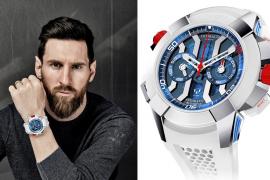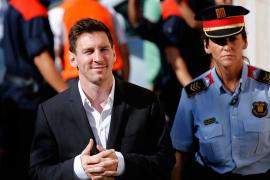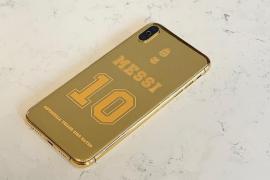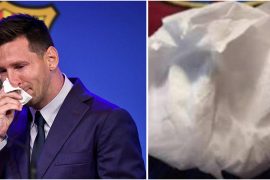Lionel Messi won the first World Cup for Argentina in 32 years in Qatar. The man who led his nation to a historic victory was offered a bisht, a traditional Arab cloak, to wear by the emir of Qatar at the World Cup trophy presentation. Ahmed Al Barwani, a lawyer and member of parliament in Oman, offered the iconic sportsman a cool $1 million for the bisht he donned while lifting the Jules Rimet. With hopes of keeping the symbol in the Middle East, he tweeted, “From the Sultanate of Oman, I congratulate you for winning the World Cup Qatar 2022…The Arabic bisht a symbol of chivalry and wisdom. I’m offering you a million dollars (£829,000) in return for that bisht.” I wonder what wanting it back for a hefty sum says of the respect bestowed on the world’s current favorite footballer. Barwani told The National, “I was at the stadium watching that moment live when the Emir of Qatar gave Messi the bisht. This moment told the world that we are here, and this is our culture; please know it well.

He continued, “It will be displayed to commemorate that moment of pride, and to help us relive it, and to also remind us that we can (do anything).” The bisht that could get Messi $1 million was made for a mere $2000. The Sun revealed that Qatari tailor Muhammad Abdullah Al-Salem was responsible for making the cape. The tailor shared, “At first, we were not aware when we were asked to design this bisht that it was for the World Cup champion. We were surprised that the bisht that Messi wore was from our store, and I felt proud when my knowledge is that our store was the first choice of officials to manufacture this bisht.”
What is a bisht?
It is believed the men of Saudi Arabia don the bisht on special or ceremonial occasions such as Weddings or religious festivals. The traditional men’s cloak is generally donned by politicians, sheiks, and high-status individuals. The veil is made of light, sheer, breezy material embellishments of real gold and is usually worn over a white thobe. Mustafa Baig, a lecturer in Islamic studies at the University of Exeter, told Aljazeera, “So only a select few people would actually wear the bisht,” he said. “They basically honoured him [Messi] by putting it over his shoulders. It’s like a mark of honour and just kind of a cultural welcoming and a cultural acceptance.” He added, “And this is a top occasion. I mean, there’s probably no bigger occasion, so they put it on him as a mark of honour.” While it is viewed as a sign of appreciation and respect, I wonder what asking to repurchase entails.









